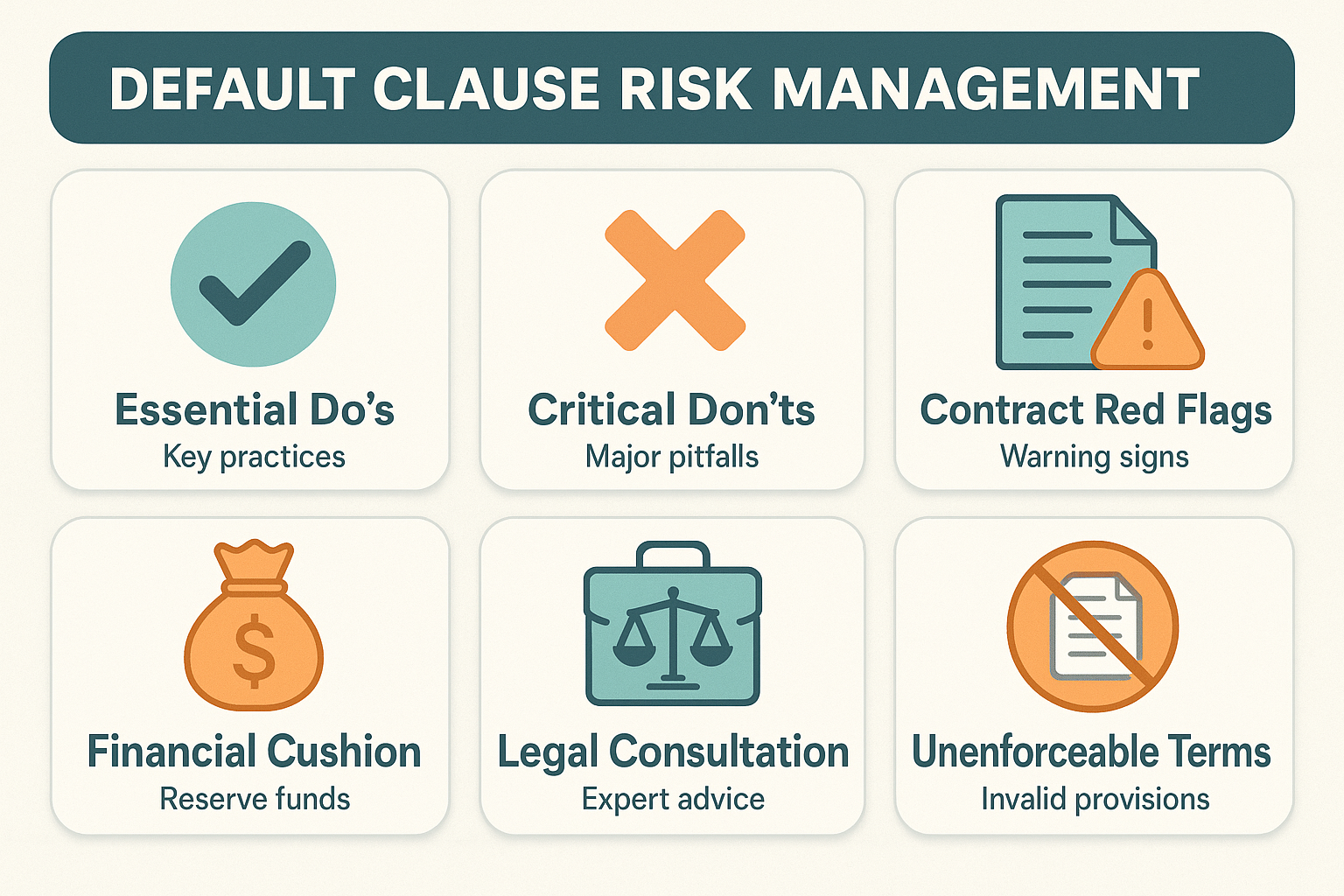Merchant cash advance agreements often contain default clauses that could put your business at serious legal and financial risk. Understanding these contract provisions before signing can help you avoid agreements that might automatically result in harsh consequences if financial difficulties arise.
Essential Do's for Managing MCA Default Risks

Managing merchant cash advance default clause risk requires careful preparation and contract review. These essential practices can help protect your business from predatory terms and unexpected legal complications.
- Carefully examine all MCA agreements for confession of judgment clauses, which may allow providers to secure judgments without a trial
- Build a financial cushion or develop alternative payment strategies to handle MCA obligations during slow business periods
- Review assignment of receivables terms to understand exactly which business assets could be affected in case of default
- Negotiate contract terms upfront rather than accepting standard agreements that might contain unfavorable default protections
- Consult with legal professionals before signing agreements that include personal guarantees or automatic collection mechanisms
Critical Don'ts When Reviewing Default Clauses
Avoiding certain contract provisions and business practices can significantly reduce your exposure to merchant cash advance default clause risk. These common mistakes could lead to severe legal and financial consequences.
- Don't ignore confession of judgment clauses that might enable immediate legal action without your ability to defend in court
- Don't accept fixed payment structures that don't adjust based on your actual daily sales volume
- Don't sign agreements with excessive interest rates or fees that could make default more likely during business downturns
- Don't overlook personal guarantee requirements that could put your personal assets at risk beyond business receivables
- Don't rush into agreements without understanding the specific triggers that constitute default under the contract terms
Understanding Regulatory Risk and Contract Red Flags
Regulatory risk in merchant cash advance agreements can significantly impact the enforceability of default clauses and your business protection options. The legal framework surrounding these financing arrangements continues to evolve, creating both opportunities and challenges for small business owners.
Contract red flags typically include provisions that allow immediate account holds, asset seizures, or aggressive collection processes upon default. These clauses might extend beyond simple assignment of receivables to encompass broader business disruption tactics that could harm your operations and reputation.
Some agreements may contain unenforceable terms that could actually work in your favor if challenged properly. However, relying on potential unenforceability isn't a sound business strategy. Instead, focus on understanding which specific contract provisions create the highest risk for your situation and seek agreements with more balanced default protections from the outset.
Protecting your business from merchant cash advance default clause risk starts with careful contract review and proactive financial planning. By understanding the potential legal and financial consequences, you can make more informed decisions about financing options and negotiate better terms that align with your business needs.

.png)






